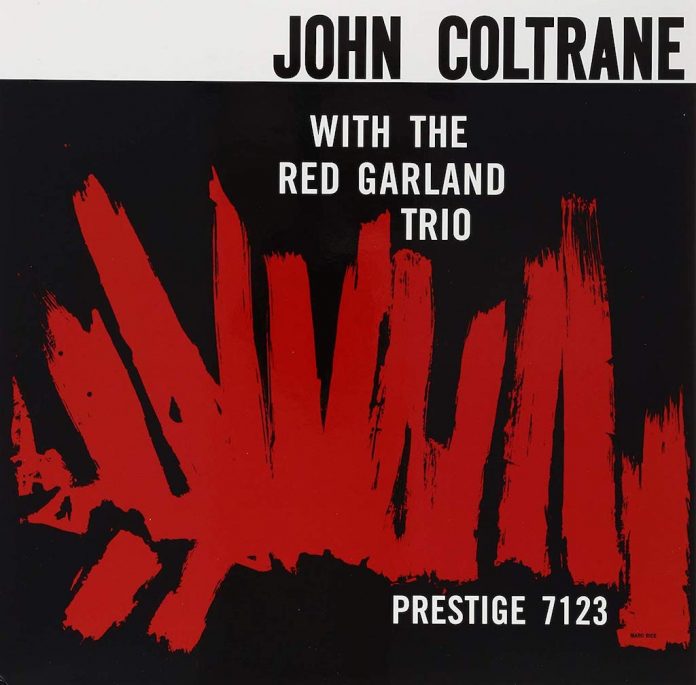Of the group of younger tenor players who have made their way in New York jazz, Sonny Rollins has been a leader and the strongest individual voice, while Benny Golson, through his arranging, has spread his talent furthest. But throughout these “coming-up days” John Coltrane has been a pace-setter, an influence, a man tipped as one to watch.
These men and many another saxophonist have grown up in the shadow of Coleman Hawkins and from his school have taken the eloquence, the outpouring, the vigorous use of the whole range of the instrument. Coltrane’s has aptly been called a “squirting” style. It is also extremely vocal, although the tone is unyielding, in a stumbling, compulsive way. I would suggest that like Rollins, one of Coltrane’s most pronounced – and in a way most valuable – qualities is his insistence. His aim is to extract everything possible from his material, from every angle – rather like a superlative dentist.
For this 1957 recording Coltrane used the Red Garland Trio, whose work is already well known with both Miles Davis and Sonny Rollins. There could be no better choice. The trio makes an admirable group on its own (listen to the “Groovy” LP) and provides perfect support for any musician strong enough to carry a session. Red Garland is a swinger with two hands full of ideas – listen to his opening solo on the first blues track or his support work in “Soft Lights”. Paul Chambers is the coming bass player with admirable tone and drive – he even succeeds in making his bowed solo in “Bass Blues” acceptable. Art Taylor’s sensitive drumming is solid and without undue fluster. A listen and learn record.
Graham Boatfield
Discography
Traneing In; Slow Dance (17½ min.)—Bass Blues; You Leave Me Breathless; Soft Lights And Sweet Music (19 min.)
John Coltrane (ten); Red Garland (p); Paul Chambers (bs); Arthur Taylor (d). August 23rd, 1957.
Esquire 32-091. 12inLP. 37s. 9½d.
















